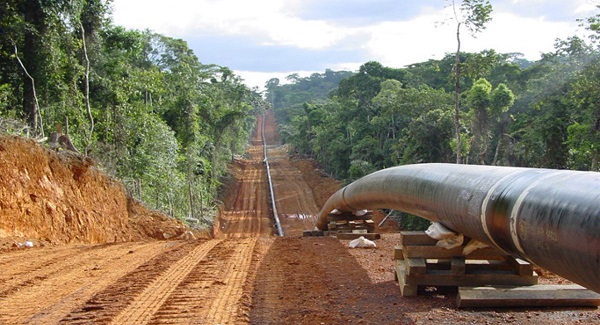Days after reports emerged that the construction of East African Crude Oil Pipeline (EACOP) project was set to commence in the second week of March, a new development has surfaced.
More than 260 organisations have urged banks not to finance the $3.5 billion project, saying the project could lead to the loss of community land and livelihoods, environmental destruction and surging carbon emissions.
Ryan Brightwell, a researcher and editor at the finance and sustainability NGO BankTrack said that they have informed banks on the consequences of funding the mega crude oil pipeline project.
In an open letter, organisations from 49 countries, including 122 African-based organisations, detail the immense threats that the 1,445-kilometer-long East African Crude Oil Pipeline (EACOP) would pose to local communities, water supplies, and biodiversity in Uganda, Tanzania, Democratic Republic of Congo and Kenya.
They also warn that the pipeline – proposed by French oil company Total and the China National Offshore Oil Corporation – will fuel climate change by transporting oil that will generate over 34 million tons of carbon emissions each year.
The letter to the three banks acting as financial advisors for the project – Standard Bank, Sumitomo Mitsui Banking Corporation, and Industrial and Commercial Bank of China – and 22 banks that have recently provided finance to Total and CNOOC, comes as speculation mounts that a Final Investment Decision (FID), which would commit Total to mobilize capital for the project, is imminent.
Nearly a third of the pipeline will run through the basin of Africa’s largest lake, Lake Victoria – which more than 40 million people depend on for water and food production. It will also cross more than 200 rivers, run through thousands of farms and cut through vital wildlife reserves.
The pipeline is expected to cost around $3.5 billion. Of this, about $2.5 billion will be borrowed from banks and other financiers. It is not yet clear which banks intend to participate, although the three banks acting as financial advisors are likely to join and act as lead arrangers.
The UK’s Export Credit Agency, UK Export Finance has also confirmed that it has been approached for a project loan, although the agency is consulting on timing around a recent announcement to end finance for fossil fuel projects overseas.
Signatories to the open letter included Friends of the Earth International, 350.org, the Catholic Agency for Overseas Development, Reclaim Finance, Sierra Club, Global Witness, the IUCN National Committee of the Netherlands, BankTrack, Africa Institute for Energy Governance (AFIEGO) and Inclusive Development International (IDI).
Several organisations that played prominent roles in fighting North American pipelines including the Dakota Access Pipeline (DAPL) and Keystone XL also signed the letter, including Indigenous Environmental Network and Divest Invest Protect. African environmental and human rights law NGO Natural Justice, a signatory, described efforts to stop EACOP as Africa “facing its own Standing Rock moment”.
The 263 organisations are demanding that Total provides full and fair compensation to communities already affected by the project, and are calling on banks to publicly rule out providing any funding to the construction of the pipeline and work with governments and other financiers to promote a sustainable energy future for East Africa based on clean alternatives instead of oil.
And the letter has already started bearing fruits. Standard Bank Group Ltd. has hired an independent adviser to help assess its involvement in the project, according to Bloomberg.
“A full environmental and social due diligence report” will be issued after the advisers visit the project area, Standard Bank, which acknowledged receipt of the letter, said in an emailed response to questions.
Also Read
Africa gets the lion’s share of energy financing from China
Could this new sustainable building simulation be the future of design?

